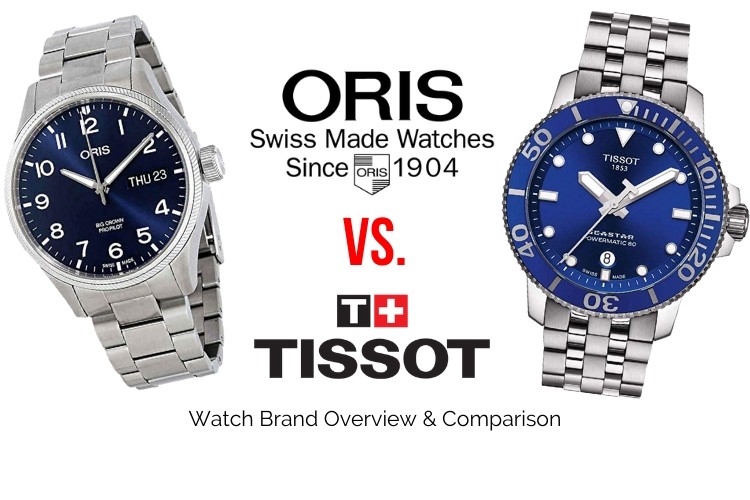When exploring Swiss watches that offer premium craftsmanship without the ultra-high-end price tag, two names frequently stand out: Oris and Tissot. Both brands are known for providing quality Swiss-made timepieces at relatively affordable prices, yet they differ greatly in design philosophy, innovation, and brand positioning. Let’s break down the comparison between Oris vs Tissot and help you decide which brand might be right for your wrist.
Brand Philosophy and Heritage
Tissot, established in 1853, is deeply rooted in Swiss watchmaking history. It has always prided itself on offering accessible, stylish watches with a traditional flair. Now a part of the Swatch Group, Tissot benefits from industrial scalability, allowing it to offer a wide variety of designs—ranging from classic dress watches to cutting-edge smartwatches.
Oris, on the other hand, was founded in 1904 and remains proudly independent. This gives Oris a unique edge: they focus entirely on mechanical watches, with no quartz offerings. Oris is known for its innovation in sustainability and diving heritage, and it has become a cult favorite for enthusiasts who want modern engineering with a sense of purpose.
Design and Functionality
Tissot offers a vast lineup that caters to virtually every segment—dress, sport, chronograph, and digital. Their PRX series, with its integrated bracelet and retro design, has seen a resurgence in popularity. Tissot watches tend to have a more traditional look with mass appeal.
Oris, meanwhile, leans toward a modern and utilitarian aesthetic. The Aquis dive watches and Big Crown ProPilot aviation watches are examples of Oris’s commitment to tool watch functionality and unique styling. Oris often experiments with dial textures, colors, and case materials (like bronze and recycled plastics), giving their timepieces a fresh edge.
Movements and Innovation
Tissot leverages its access to Swatch Group’s ETA movements and recently introduced in-house caliber Powermatic 80—a movement with an 80-hour power reserve. It’s a testament to Tissot’s ability to pack value into every piece.
Oris has taken a different route, recently launching its in-house Calibre 400 with a 120-hour power reserve and anti-magnetic properties. This shows Oris’s focus on innovation despite being independent.
Pricing and Value
Both brands offer excellent value, but Tissot typically operates at a lower price range, making it a great entry point for new collectors. Oris costs slightly more on average but justifies it with mechanical complexity, design distinctiveness, and independence.
FAQs: Oris vs Tissot
Q1: Which brand is better for first-time buyers?
A: Tissot is often more beginner-friendly due to its wide variety and lower price point.
Q2: Are Oris watches worth the higher price?
A: Yes. Oris offers innovative features, in-house movements, and sustainability-focused designs, making them a strong value in the sub-luxury segment.
Q3: Do both brands offer Swiss-made watches?
A: Absolutely. Both Tissot and Oris are certified Swiss-made and maintain high standards of craftsmanship.
Q4: Which is more focused on mechanical watches?
A: Oris. It produces only mechanical timepieces, unlike Tissot, which offers both quartz and mechanical options.
If you’re looking for affordable tradition with a broad catalog, Tissot is your go-to. If you prefer mechanical-only, independent innovation with a modern twist, Oris is hard to beat.
Let me know if you’d like a title tag or meta description for this post!
